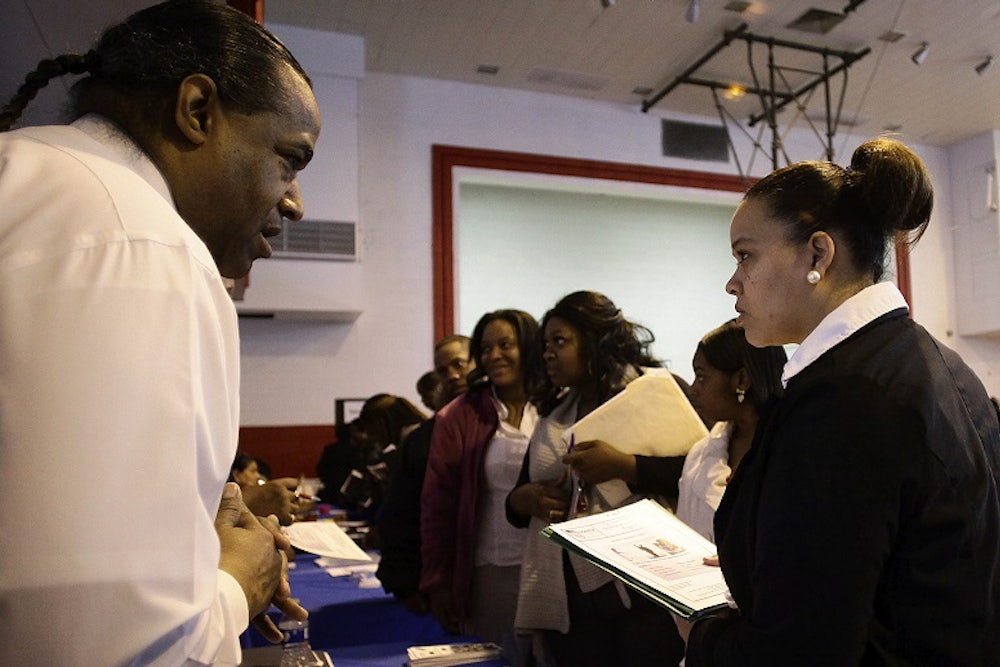The fight over renewing unemployment benefits is at a standstill—among lawmakers and, it would seem, among those of us writing about it in the media. One reason is that both left and right predicted a cutoff of benefits would drive down the rate of long-term unemployment. Liberals thought it would happen because people would give up and stop looking for work; conservatives thought it would happen because people would get motivated to find and take jobs they shirked before. But while benefits lapsed at the end of December, the long-term unemployed rate has held steady—meaning neither prediction has come true, at least so far.
This may sound familiar to you, because I wrote about this last week. In that post, I cited some anecdotal evidence—from a PBS Newshour series—that people who lost benefits were struggling just to get by. While anecdotes aren’t data, I noted, it was a sign that letting benefits expire was a bad thing. That provoked a response from The Federalist’s Scott Lincicome, who took a rather different view:
If Vinik now wants to say that these liberal arguments were misguided, then so be it (and good for him). And if he wants some anecdotal “evidence” from PBS to be the “main liberal argument” for spending $25 billion taxpayer dollars on a program that, while its expiry might not have pushed the long-term unemployed back to work or out of the labor force, most certainty [sic] has proven utterly unable to remedy the United States’ long-term unemployment problem, then so be it. That’s a debate I bet most right-leaning pundits and Republican politicians would just love to have.
Yes, let’s have that debate—because it gets right to the heart of the real issues here, and the real injustice being done.
It’s true we don’t have data to show that cutting off benefits is affecting the economy overall, just as we don’t have data to show that people are dropping out of the labor force. We may get that data at some point—who knows. But it’s not there yet.
Even so, there’s a lot of very reliable research on the long-term unemployed—and what’s happening to them. We have, for example, studies showing that the long-term unemployed are systematically discriminated against in their job searches. Employers won’t consider their job applications even if they have the requisite experience. We have evidence that long-term unemployment leads to depression and other negative health effects. FiveThirtyEight’s Ben Casselman performed a regression using Current Population Survey data and found that the strongest indicator of whether an unemployed became long-term unemployed was when they lost their job. In other words, luck.
To Lincicome—and to many conservatives—that alone is not justification for extending unemployment benefits. They want overwhelming proof that the PBS evidence I cited is not just anecdotal, but widespread. That places an insurmountable burden of proof on the liberal position. It’s impossible to have such evidence, since the benefits expired just three months ago.
Instead, the burden of proof ought to be on conservatives. They worry about the cost of the program—$25 billion over the course of a year. But $25 billion is not a huge expenditure in a $3 trillion federal budget. Yes, the country has a long-term fiscal problem: Spending is likely to be much higher than revenue in decades to come. But that’s not because of one-time, temporary expenditures like these. That’s because of health care costs, which drive entitlement spending, and a tax base too low to support the programs Americans expect.
Every policy has tradeoffs. The risk with extending UI is that those “anecdotal” stories do not prove widespread and the money is wasted. But the conservative position carries its own risk as well—one in which the well-being of several million jobless Americans are at stake.
